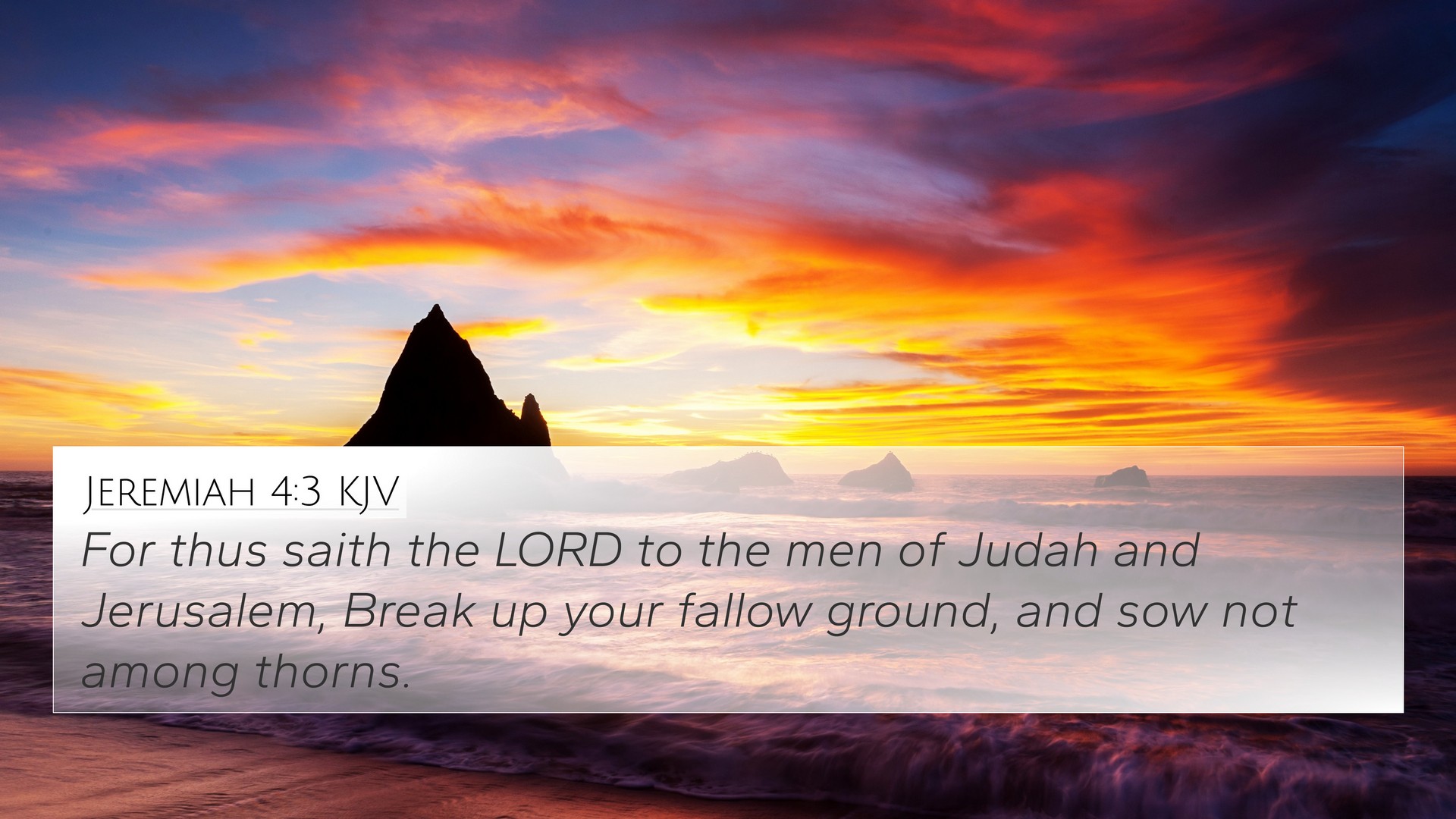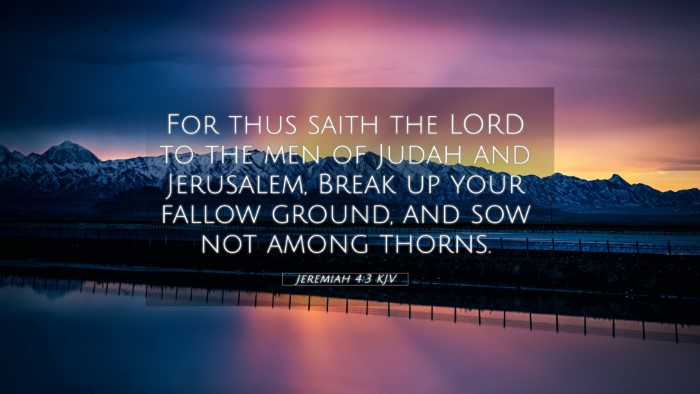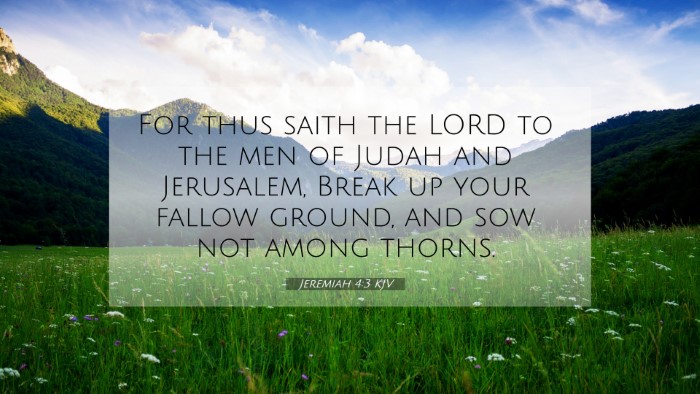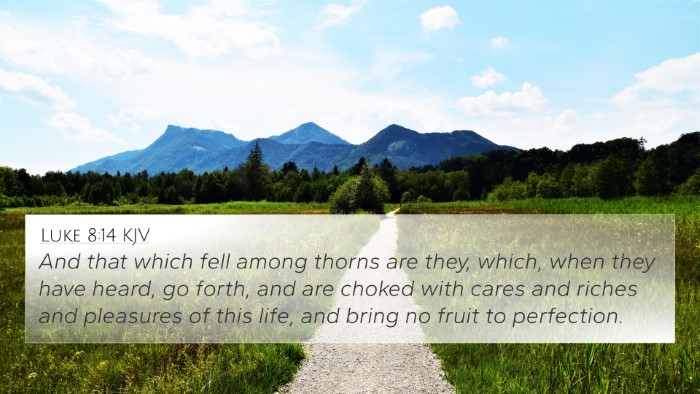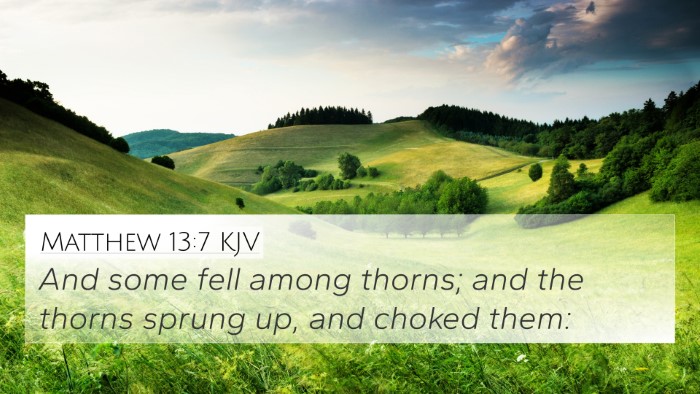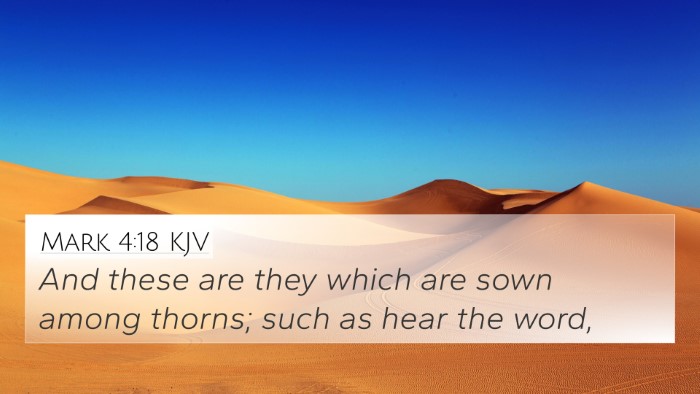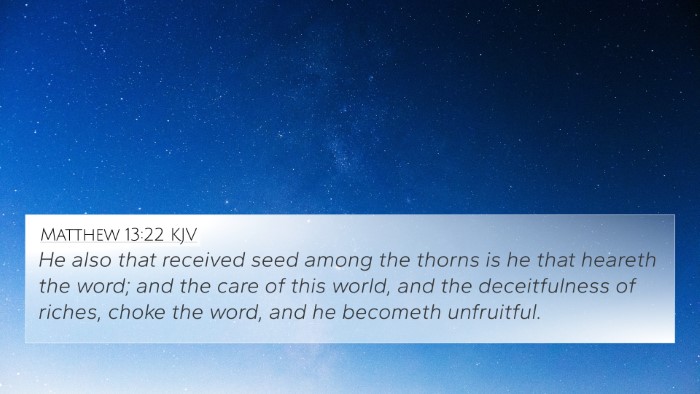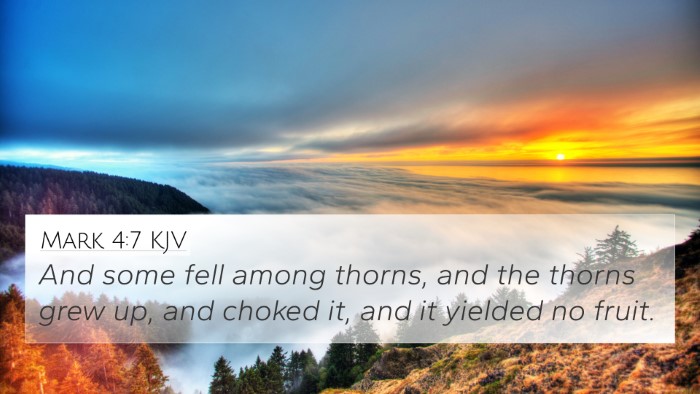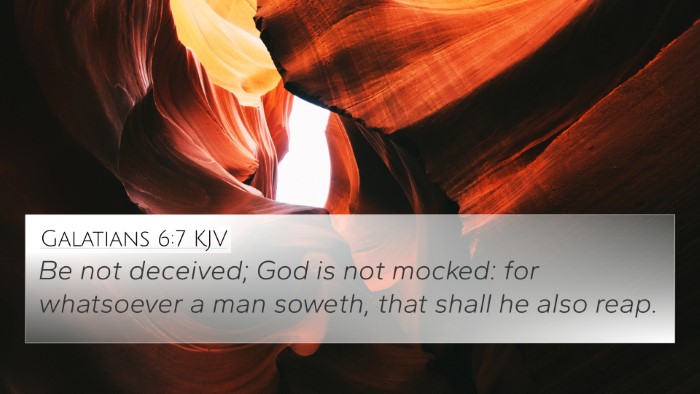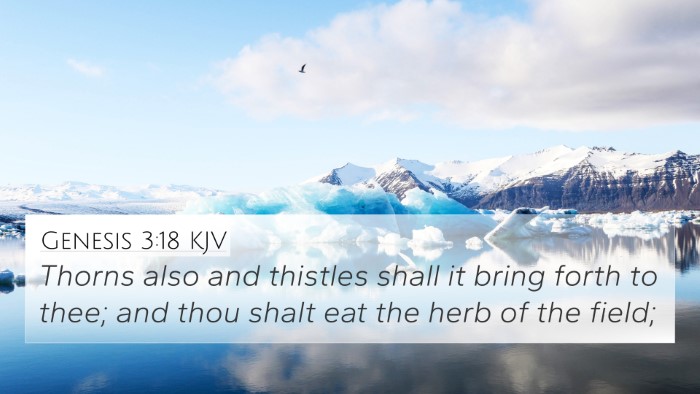Understanding Jeremiah 4:3
This page provides insights and interpretations of the Bible verse Jeremiah 4:3, synthesizing various public domain commentaries.
Verse Context
Jeremiah 4:3 (NIV): "This is what the Lord says to the people of Judah and to Jerusalem: ‘Break up your unplowed ground and do not sow among thorns.’”
Summary of Meaning
Jeremiah 4:3 is a call to the people of Judah to prepare their hearts for genuine repentance and return to God. The imagery of breaking up unplowed ground symbolizes the need for spiritual renewal. It signifies an invitation to remove obstacles (thorns) that hinder a fruitful relationship with God.
Commentary Insights
- Matthew Henry: He emphasizes the significance of the heart's state in receiving God's word. Just as a farmer prepares his land for sowing, so must individuals prepare their hearts to receive God's truth. The 'thorns' represent worldly distractions that choke spiritual growth.
- Albert Barnes: Barnes highlights the urgent call for repentance. The 'unplowed ground' represents the untouched hearts of the people, which need to be broken and softened. He connects this verse to the idea of removing sin and preparing for the sowing of righteousness.
- Adam Clarke: Clarke delves into the metaphor of agricultural practices to interpret this verse. He explains that breaking up the ground signifies judgment, yet also hope for new spiritual growth. The mention of 'thorns' underscores the dangers of allowing sin to obstruct God's blessings.
Cross-References in the Bible
Jeremiah 4:3 resonates with several other Scriptures that illuminate its meaning and provide a broader understanding of the themes discussed. Here are some key cross-references:
- Hosea 10:12: "Sow righteousness for yourselves, reap the fruit of unfailing love, and break up your unplowed ground; for it is time to seek the LORD." This verse reinforces the idea of preparing the heart for spiritual sowing.
- Matthew 13:7: "Other seeds fell among thorns, which grew up and choked the plants." This New Testament verse connects with the thorns mentioned in Jeremiah, illustrating the consequences of neglecting to guard one's spiritual life.
- Luke 8:14: "The seed that fell among thorns stands for those who hear, but as they go on their way they are choked by life’s worries, riches, and pleasures." Again, we see the theme of being careful about distractions in our spiritual journey.
- 1 Corinthians 3:6: "I planted the seed, Apollos watered it, but God has been making it grow." This highlights the importance of preparation and nurture in spiritual growth, akin to tilling the ground for planting.
- James 1:21: "Therefore, get rid of all moral filth and the evil that is so prevalent and humbly accept the word planted in you, which can save you." This verse parallels the concept of removing obstacles to allow God’s word to take root in the heart.
- Isaiah 5:4: "What more could have been done for my vineyard than I have done for it?" This refers to God’s care and the expectation for His people to respond positively to His cultivation efforts.
- Galatians 6:7: "Do not be deceived: God cannot be mocked. A man reaps what he sows." This underscores the moral responsibility tied to the themes of sowing and reaping seen in Jeremiah.
- 2 Chronicles 7:14: "If my people, who are called by my name, will humble themselves and pray and seek my face and turn from their wicked ways, then I will hear from heaven and will forgive their sin and will heal their land." This encourages a response to the call for repentance found in Jeremiah.
- Matthew 21:19: "Seeing a fig tree by the road, he went up to it but found nothing on it except leaves. Then he said to it, 'May you never bear fruit again!'” This illustrates judgment on fruitlessness, correlating to the call to prepare one’s heart in Jeremiah.
- Philippians 4:6-7: "Do not be anxious about anything, but in every situation, by prayer and petition, with thanksgiving, present your requests to God." This verse emphasizes being free from distractions, much like the call in Jeremiah to not sow among thorns.
Thematic Connections
The themes of preparation, repentance, and fruitful living are central to Jeremiah 4:3. These themes are echoed throughout Scripture, linking both the Old and New Testaments in addressing humanity's need for a relationship with God. Notably, the agricultural imagery is prevalent across various passages, illustrating the consistent biblical principle that God desires a heart that is ready to receive His word and bear fruit.
Conclusion
In summary, Jeremiah 4:3 serves as a powerful call for spiritual renewal. By exploring related verses and insights from biblical commentators, we can see a comprehensive message emphasizing the importance of cultivating our spiritual lives free from distractions and sin. This understanding is enriched through cross-referencing biblical texts, revealing a thematic dialogue that spans the entirety of the Scriptures.
